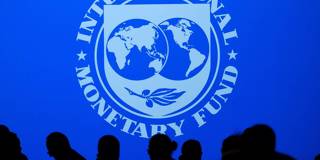These days, the International Monetary Fund’s policy recommendations – especially as they pertain to the advanced economies – have little impact. Although this is partly a consequence of more inward-looking national politics in richer countries, the Fund itself is not blameless.
NEW YORK – This year, I didn’t attend the October annual meetings of the International Monetary Fund and the World Bank in Washington, DC. Instead, I paid close attention to reports of the gathering and talked to people who were there whom I respect. What emerged is depressing for the wellbeing of the global economy. In particular, the prospect of continued weakness and fragmentation pressures will compound the challenges to the credibility and effectiveness of multilateral institutions.

NEW YORK – This year, I didn’t attend the October annual meetings of the International Monetary Fund and the World Bank in Washington, DC. Instead, I paid close attention to reports of the gathering and talked to people who were there whom I respect. What emerged is depressing for the wellbeing of the global economy. In particular, the prospect of continued weakness and fragmentation pressures will compound the challenges to the credibility and effectiveness of multilateral institutions.